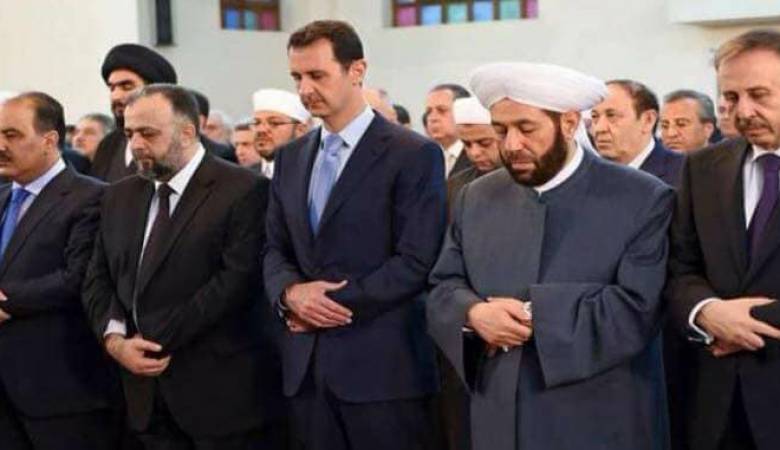Since the text of Decree No. 16 was leaked by regime member of parliament, Nabil Salah, controversy among Syrians on social media has not stopped. The pace of criticism around the decree has escalated, which needs nothing more than the parliament’s approval to be implemented.
The leaked decree is composed of 39 pages, and was published in full on Facebook. It includes the expansion of the powers of the Ministry of Religious Endowments, which would appoint the republic’s mufti, with appointments lasting no more than three years. The draft also includes the formation of a council within the Ministry called the “Supreme Religious Endowments Council” whose tasks include matters related to Islamic religious guidance and direction. The decree will — according to the text — “fight the spread of extremist takfiri ideas, in all their forms, and protect Arabism and the national unity.” The decree allows the Ministry to govern financial and educational institutions in addition to governing artistic and cultural production, as well as establishing a religious group called “The Religious Youth Group.”
Regime media pages on Facebook began to share the text of the decree and threaten critics who raised their voices and advised them to back down. They called on the pages and media platforms opposing the decree to stop their opposition as it had been signed by President Assad, who is authorized by law to issue decrees, outside parliamentary sessions, which means that opposing the decree meant opposing the President himself.
However loyalists refused to obey these orders and continued to oppose to the decree. They considered those who obey this decree to be using this as an exercise to prove their loyalty and nationalism.
A wide spectrum of regime loyalists joined in the criticisms, believing that the new decree was contrary to the regime’s promises, which pushed some to join a statement opposing the decree, which was circulated on social media.
The draft law was also criticized by a wide range of regime opponents. A large number of them adopted a unified text protesting the law, saying:
“I am a Syrian citizen … I categorically reject any project to turn Syria into a religious state, and I also reject any project to control Syrian society through religious institutions, whatever their motives. I declare my total rejection of the Religious Endowment Ministry’s new law. I also declare my hope for a democratic, secular, civil Syria and I will fight with all my ability to reach this noble aim.”
However other opposition members considered the matter to be a game by the Assad regime and refused to get involved in the controversy around the law.
This article was translated and edited by The Syrian Observer. Responsibility for the information and views set out in this article lies entirely with the author.


